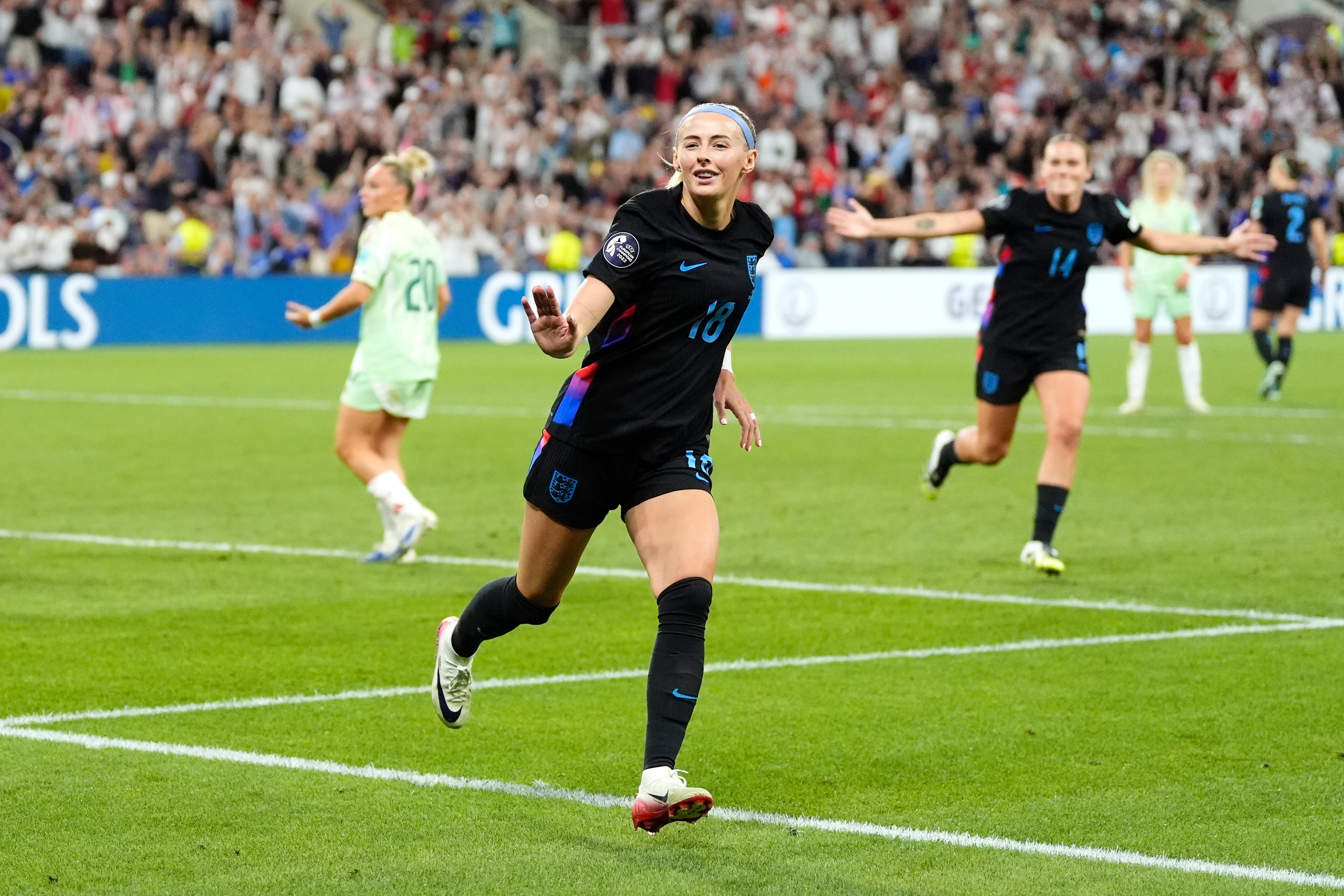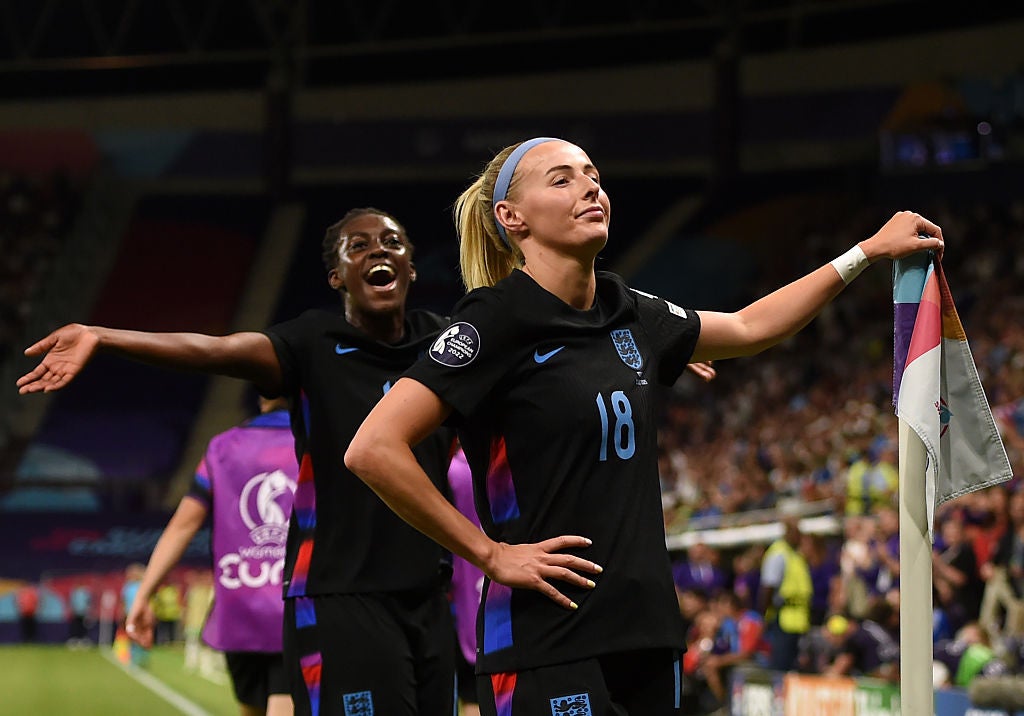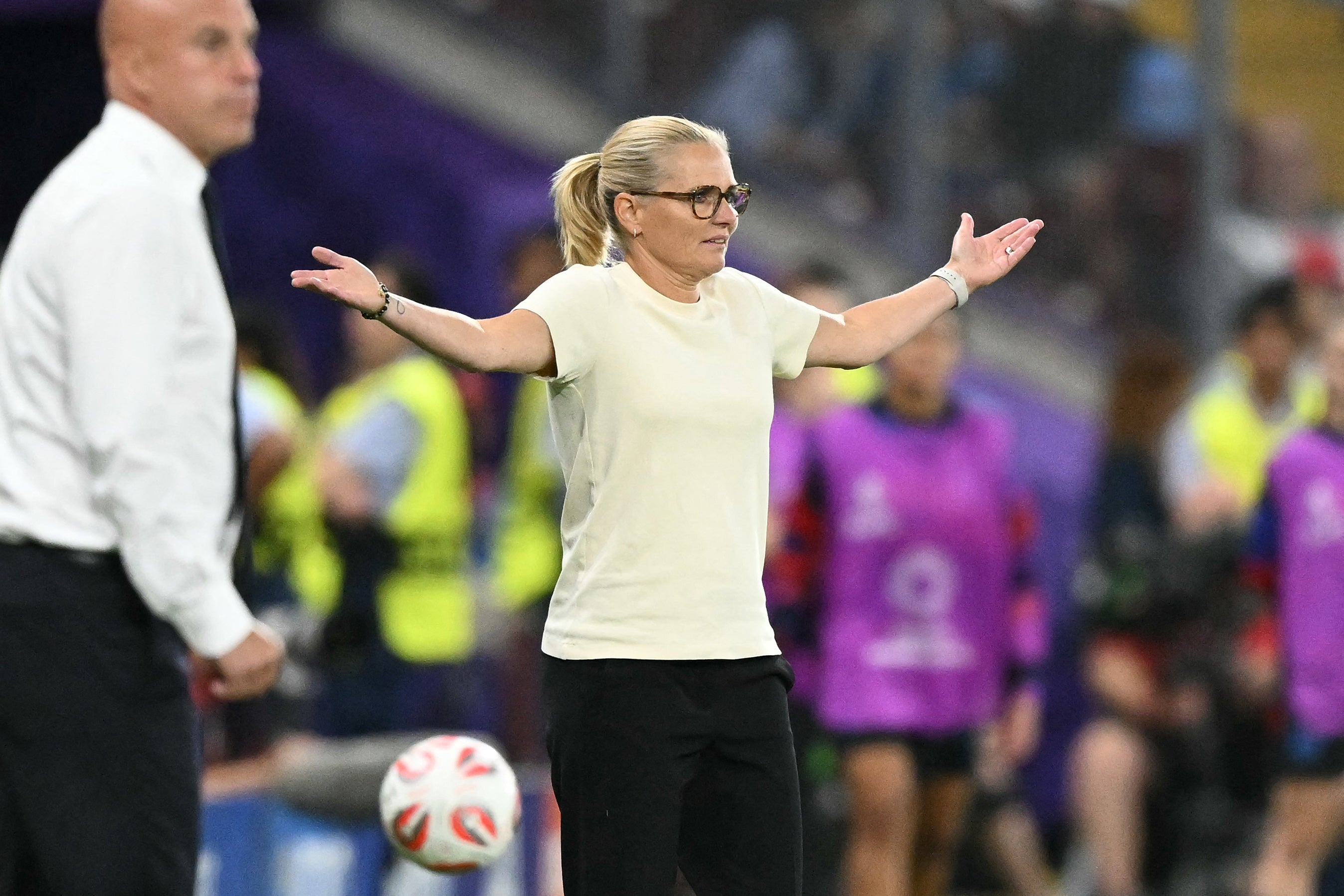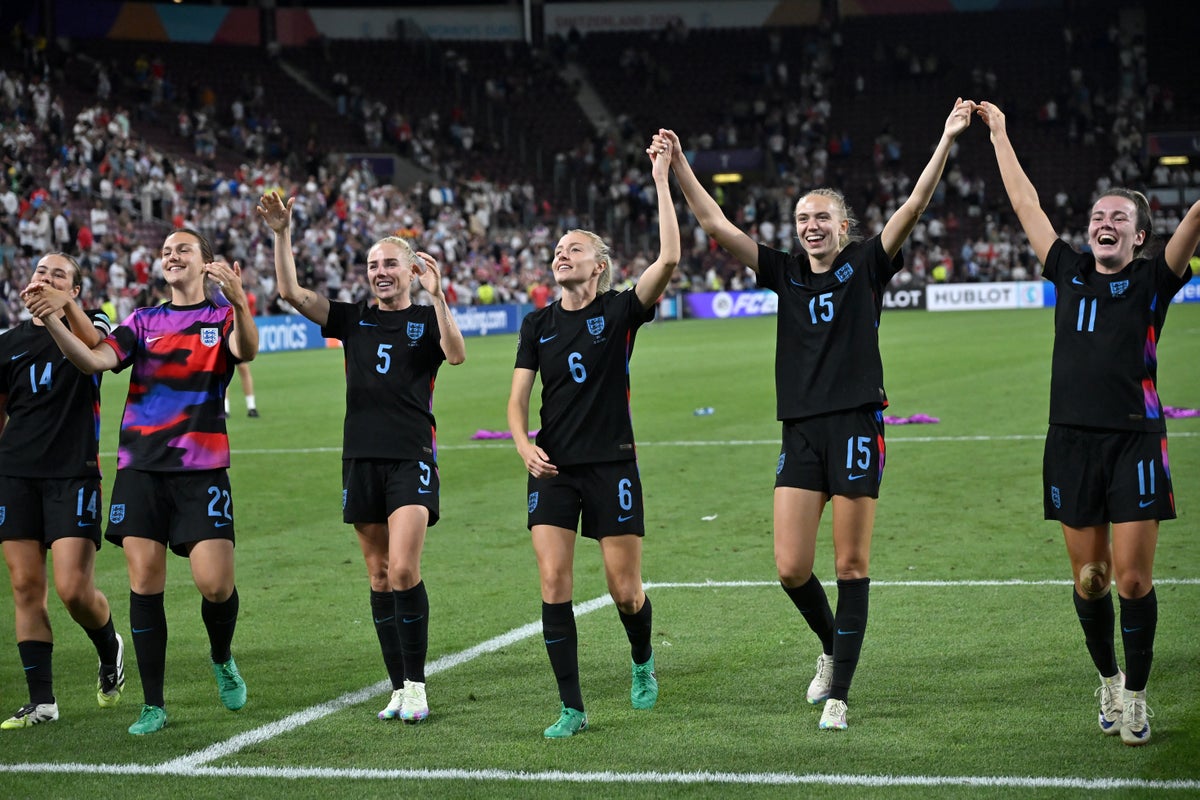As the giddy talk in Geneva inevitably turned to endings, and comparisons with movies, match-winner Chloe Kelly described it as a “fantasy”. That might well refer to the improbability of England somehow winning despite performing so badly, even though that’s obviously not what the forward meant.
Sarina Wiegman and her squad naturally don’t want to get into such critical discussion right now, and for good reason. There’s another historic final appearance to celebrate. There’s also going to be a lot of analysis to come before Sunday, and a lot of preparation.
They’re needed.
England are so much less than the sum of their parts, but, crucially, have greater qualities. There is a rare resolve in the team.
“The team never gives up,” Wiegman said. Her hero, Kelly, went further. An old phrase was reworked, which might be even more relevant if it is Germany rather than Spain in Sunday’s final.
“You can never write the English off.”
Against Italy, the European champions this time left it to the final 90 seconds of stoppage time. Italy even celebrated Kelly’s mis-hit corner just before Michelle Agyemang’s equaliser.
This isn’t an accident or a coincidence. There is an obvious spirit in this group. It is as visible in moments like the entire squad rallying around Jess Carter as it is in late equalisers. One also leads to the other, and there’s a multiplying effect.

The more crucial late goals you score, the more you think there’s always another there.
It might even be time to rework another old phrase, one used about Alex Ferguson’s Manchester United. This England don’t lose games. They just run out of time.
Except, time can catch up with them another way, and it’s where there’s a downside to all these late goals.
Do it a few times, and they’re a sign of resolve. Do it a lot, and they’re a sign of weakness. If you keep needing such moments, something is wrong in your team.
So there is another interpretation of what happened in Geneva on Wednesday, one that won’t necessarily be popular amid the euphoria of victory.
This one possibly wasn’t a show of resolve. It was really just a team that had vastly superior individuals to Italy, with that higher quality eventually manifesting itself. It didn’t really matter when. It just would. The gap was too wide, reflecting how fortunate England were to face such a limited side in the semi-final.

Italy had vastly overperformed to get this far, and just didn’t have the experience or nous to see it out. They made some baffling decisions in the latter stages, partly because they didn’t really have the legs to see the game out. They were exhausted. The injury to star forward Cristiana Girelli only made it worse.
There were missed opportunities to counter-attack in extra-time. Italy would suddenly have an opening to put a runner through, but it was like they didn’t want to commit. They were afraid of leaving themselves open, and perhaps knew they wouldn’t have the legs to get back either.
That’s what extra-time in such absorbing knockouts does. England have much more experience of such games, even if they were reliant on Agyemang’s freshness.
Except, in the final, they are not going to be playing a team as limited as Italy.
It’s a different test, where it instantly becomes much more dangerous to depend on another rescue act. That’s where the flaws that require so many late goals can eventually catch up with you.
It really depends on what wins out, your weaknesses or your spirit – unless you solve the problems in the first place.

Wiegman laughed as she said it “wasn’t the plan” to keep going behind in such games, but she needs to get serious about finding a new way to win.
While spirit is immensely valuable, tournaments have a tendency to eventually see you hit your limits.
Wiegman badly needs to change the limitations of this team, especially given the talents of her players.
We’re talking about one of the great coaches of the women’s game, her outstanding quality illustrated by her very record of reaching a fifth consecutive final. And yet in these Euros it is like she just hasn’t been able to solve England’s core flaws, which is their very starting line-up.
The 75th-minute subs have worked so far, and the swell around their introduction can cause further doubts for opposition. That’s another side of those late goals. At the same time, superior opposition sides can get wise to that.
Kelly is still correct. England have lived a fantasy so far. They just need to get realistic about what next. Maybe the best ending for this is not, actually, another late show.


